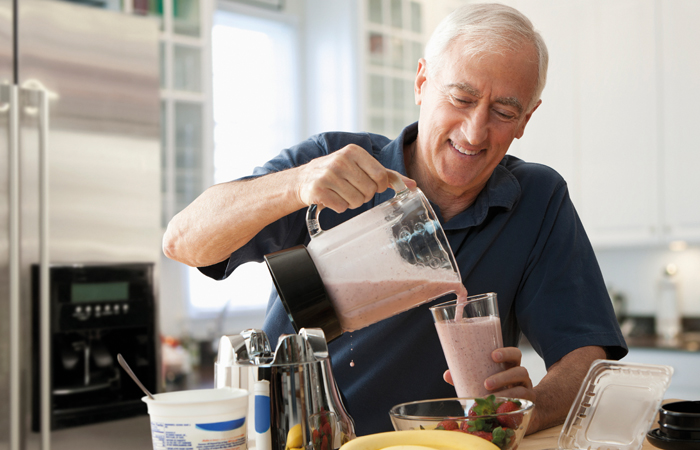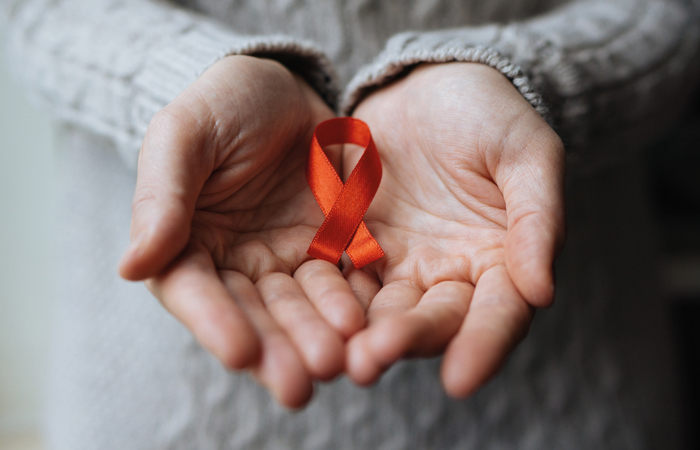Raising the issue of erection problems
In Conditions
Follow this topic
Bookmark
Record learning outcomes
Pharmacy teams have a vital role to play in addressing the stigma of erection problems and supporting customers to open up about their experiences and get the help they need
An estimated five million men in the UK experience erection problems (EPs), yet more than a quarter (27 per cent) have never talked to anyone about it, and only four per cent think to seek help from their local pharmacy, according to the ‘Let’s Get Intimate’ survey commissioned by the Viagra Connect manufacturer Upjohn in 2020.

Men of any age can be affected and, if left unaddressed, the issue can lead to all kinds of knock-on effects. “On the surface the reality of EPs for many men is bleak,” says Martin Tod, chief executive of the charity the Men’s Health Forum. “Not only can EPs be a sign of underlying conditions such as heart disease and diabetes, which if left unchecked can cause further problems, but the sense of failure and perceived loss of masculinity that many men feel as a result of EPs can also cause them to retreat from themselves, their partners and life.”
An estimated five million men in the UK experience erection problems
Causes and treatments
Most men occasionally fail to get or keep an erection, often as a result of tiredness, drinking too much alcohol, stress or anxiety, and it’s usually nothing to worry about. However, if the problem continues, it could be a sign of a more serious health issue, as Martin alludes to, such as high blood pressure, high cholesterol, cardiovascular disease, diabetes or obesity. If this is the case, it needs addressing via a referral to a GP or local sexual health clinic.
Many sexual health clinics offer a walk-in service and can provide the same treatment as a GP surgery. Whichever route is taken, the appointment will involve a discussion about lifestyle and relationships, as well as basic health checks such as blood pressure, and a genital examination to rule out any obvious physical cause. Men with the added symptom of needing to urinate more often may also require a prostate exam.
Treatments for EPs include medication or hormone replacement therapy, depending on the cause, and are usually effective at sorting out the problem. Sildenafil – commonly known as Viagra Connect – is available from a pharmacy without a prescription after a consultation with a pharmacist, and tadalafil (Cialis), vardenafil (Levitra) and avanafil (Spedra) work in a similar way but need a prescription.
With self care advice at the top of the list of pharmacy interactions, there are also plenty of healthy lifestyle changes that pharmacy teams can recommend that may also help resolve EPs, as well as mitigating or even reversing possible underlying health issues. For example, men should be encouraged and supported to lose weight if they are overweight, stop smoking, eat a healthy diet, exercise daily and find ways to reduce any anxiety or stress.

Mind on the matter
Upjohn’s Let’s Get Intimate survey also revealed that if left unaddressed EPs can have a negative impact on men’s self-esteem, causing feelings of anxiety (27 per cent), a lack of confidence (23 per cent) and depression (19 per cent).
The NHS advice for men is to ask for counselling and cognitive behavioural therapy (CBT) to address anxiety and depression. GPs may also recommend sex therapy, either on its own or in combination with other psychotherapy, but there is usually a long wait for these services on the NHS, unless the person is willing and able to pay to see a therapist privately.
Unfortunately, it’s not just the man directly affected by EPs who can be left feeling isolated, anxious or under pressure. The resulting lack of intimacy can also lead to issues and concerns for their partner, including a worry he no longer finds them attractive, doesn’t love them anymore, or is having an affair.

Encouraging conversations
Whatever the underlying issue, and whatever treatment program is followed, men’s health organisations agree there needs to be more openness about the prevalence of EPs among men in order to help normalise the issue.
The ‘Time to Raise It’ movement – developed and funded by Upjohn and backed by supporters including the Men’s Health Forum, the sexual health charity Brook and dating and relationship expert Sarah Louise Ryan – is aiming to do just that. Its accompanying ‘Time to Raise It’ report claims this wall of silence around talking about EPs is creating what it calls an “erection gap”, which is the amount of time some men take to address the issue once they’ve noticed it. At its worst, the report says this can be up to two years, and in that time, there could be wider mental and physical health challenges that are going unchecked.
Thankfully, this doesn’t have to be the case. The research found that simply talking openly about the issue with a partner, a friend or a healthcare professional can help to relieve the burden that so many men and their partners feel.
Addressing the problem is also important for re-establishing intimacy, which has valuable health-protective effects itself. For example, a recent research review published in the journal Sexual Medicine Reviews entitled ‘Sexual Health Implications of Covid-19 Pandemic’, looked into the effects of the pandemic on adult intimacy and relationships. It highlighted that sexual activity has a positive impact on psychological health, the immune response, and cognitive function and could mitigate psychosocial stressors. “The Covid-19 pandemic affects indirectly the sexual function with implications on overall health,” it concluded.
Men’s health organisations agree there needs to be more openness about the prevalence of EPs
Pharmacy help
As the most accessible frontline healthcare professionals, pharmacy teams have an ideal opportunity to broach the topic of EPs and provide men and their partners with the tools that they need to discuss intimacy and normalise the conversation. However, with a delicate issue such as this, it can be easier said than done.
Rob Elliot, marketing director for Viagra Connect, says that because EPs are a sensitive topic, it is important for pharmacy teams to adapt their approach to suit the needs of each customer. “Some men may feel more comfortable discussing the issue at the counter, whereas others may prefer to browse the sexual health section and wait to be approached,” says Rob. He also suggests that “watching for visual cues and developing soft skills such as reading body language can help pharmacy staff feel more confident in assessing the best way to approach a potential customer”.
Mike Wakeman, clinical pharmacist and advisor for supplements provider Nature’s Way, agrees that many men may not seek help from a healthcare professional as they are too embarrassed to do so. He says the most likely scenario to spot is a customer browsing for a long time in the area of the pharmacy where medicines such as Viagra Connect or literature about it can be found, which could act as an opportunity for pharmacy staff to initiate a conversation with them.
When pharmacy teams notice these customers, Mike says there are several things to consider. “The words used along with the tone of voice and gestures are important considerations and can put customers at ease to enable them to become less embarrassed and engage in a positive consultation. Offering privacy will also ensure confidentiality is maintained, which will reinforce the customer’s confidence that the matter is being treated seriously. Try sentences such as ‘before I make any recommendations I will I need to ask you a few questions to make sure which approach might be best for you’, and follow the protocol that is in place within your pharmacy. Ensure the customer understands why you are seeking the information being requested so as to prevent the questions appearing intrusive and causing them to become too defensive.”
Tools and tokens
Additionally, pharmacy staff can look for natural opportunities to broach the topic of EPs as part of wider healthcare discussions, for example around diet and stress management, that might be connected to the problem.
To support pharmacy teams with this, Viagra Connect has developed extensive training materials to help staff feel equipped to deal with anxious men who may be embarrassed to talk about EPs, build trust with them, and help them understand the potential causes of their EPs, as well as different treatment options available. A particularly useful tool is the in-store Viagra Connect consumer leaflets and tokens, which men who may feel daunted by asking about EPs can pick up and take to the pharmacy counter. These tokens mean men don’t have to ask for Viagra Connect out loud or talk about EPs in front of other customers.
Ultimately, Martin says everyone has a responsibility to speak more openly about EPs in order to remove the stigma and embarrassment surrounding them. “It is important to stress the absolute normality of erection problems and the multitude of factors that can cause them,” he says. “EPs affect everyone from time to time, and it can actually be a positive thing if we see it not as a disaster but as a useful advance warning. Erection problems can warn you of physical problems like heart disease or diabetes, mental health challenges like depression or relationship problems – all of which can be treated if we can just overcome the hurdle and speak to our partner and/or a health professional.”
Signposting and support
For those men who are not quite ready to talk, there are many places pharmacy staff can signpost them and their partners to for further help and support. “It’s a topic where men want a lot of information, not conversation,” explains Martin.
The Time to Raise It movement has its own Facebook page, which is a great first port of call for anyone looking for advice about EPs and the impact they can have on intimacy and relationships. There is also plenty of information on the NHS website, as well as via the Men’s Health Forum. “EP is one of the most popular topics on our site”, says Martin “and we also have a penis health chat forum on the health social network HealthUnlocked.com where men can discuss issues like this anonymously”.
By working out how to have sensitive conversations with men about EPs – which might feel awkward for both sides – pharmacy staff can help to break the silence around this issue and work to normalise what is a very common problem for a lot of men at various stages in their lives.
An HIV update
In 2019, it was projected that of the 105,200 people estimated to be living with HIV in the UK, 94 per cent were diagnosed. The latest information from the National Aids Trust suggests 98 per cent of people diagnosed with HIV in the UK are on treatment, and 97 per cent of those are virally suppressed, which means they can’t pass the virus on.
In addition, thanks to sustained campaigns to raise awareness around HIV and encourage condom use, more HIV testing in a variety of settings, and better access to antiretroviral therapy after diagnosis, Public Health England (PHE) says the number of newly diagnosed cases of HIV in gay and bisexual men has fallen to its lowest level in 20 years, with 1,700 new diagnoses last in 2019.
PHE has made it clear that pre-exposure prophylaxis (PrEP) has played a significant part in reducing HIV transmission – particularly amongst gay, bisexual and other men who have sex with men. PrEP prevents people getting HIV and is almost 100 per cent effective when taken as prescribed. Local authorities are set to receive £16 million throughout 2020-21 to offer the treatment via local sexual health clinics for anyone at risk of contracting HIV.
Those who are concerned about their own risk of contracting HIV can also access PrEP via Superdrug’s offering of the first private service in community pharmacy, starting at £80 for a month’s supply.
It is important to note that PrEP does not protect against sexually transmitted infections, so people should be reminded to use condoms.

